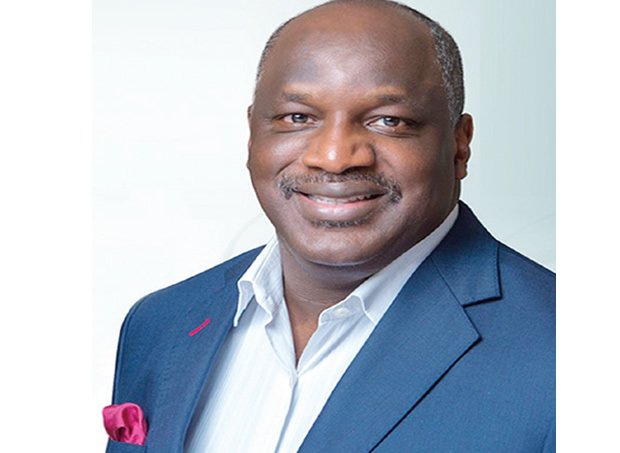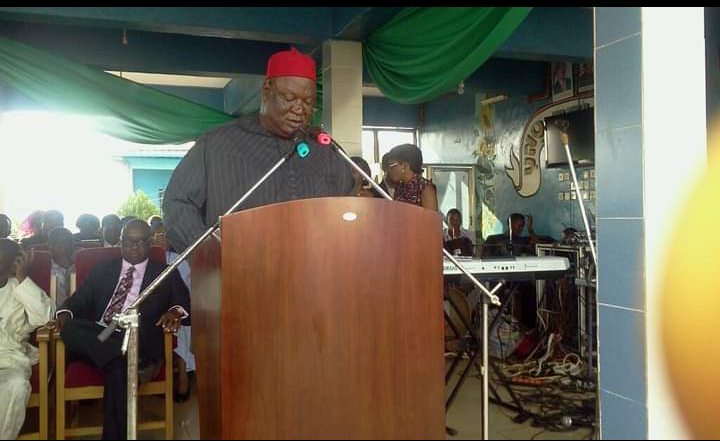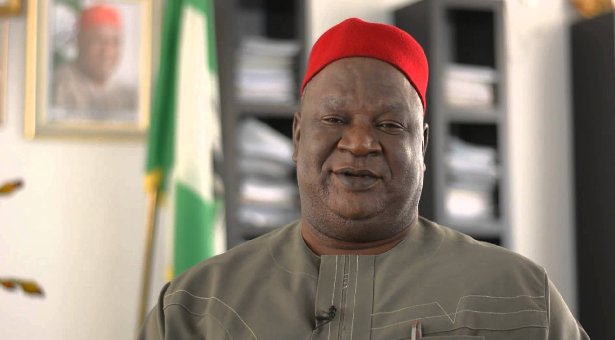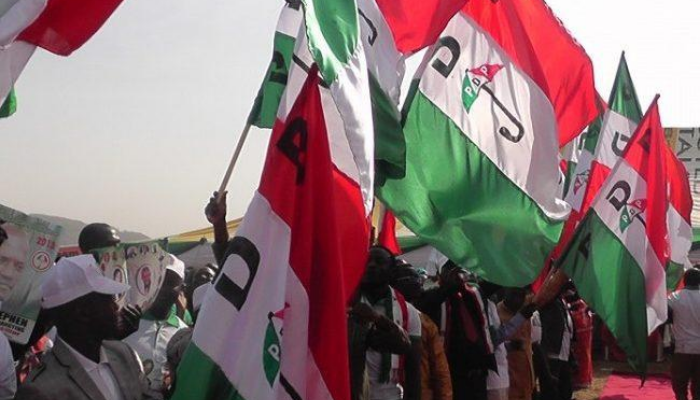TEXT OF A LECTURE DELIVERED BY SEN. ANYIM PIUS ANYIM AT THE 6TH WORLD IGBO SUMMIT HELD ON THE 18TH DECEMBER 2020 AT GREGORY UNIVERSITY, UTURU, ABIA STATE.
INTRODUCTION
Let me begin by expressing my profound gratitude to the Leadership of
Gregory University and particularly the World Igbo Summit Group and the Igbo Renaissance Centre of the University for the honour of this invitation. I am proud of what this University has come to represent in our collective effort to build a better society in Igbo land and Nigeria as a whole. I understand this is the sixth edition of this lecture series. I also know that very eminent individuals, academics, and leaders have delivered this lecture before me. I want to thank Gregory University for this thoughtful initiative and urge them to sustain it.
I looked at the topic provided by the organisers, for this lecture “Building Cooperation, and viable networks to strengthen the Igbo interest within the Nigerian Federation” and decided to tinker with it. Let me crave the permission of the World Igbo Summit Group to adjust the topic to be “IDENTIFYING THE POLITICAL INTEREST OF THE IGBOS OF THE SOUTH-EAST GEO-POLITICAL ZONE IN NIGERIA AND STRATEGIES FOR ITS ACTUALISATION. Permit me not to give reasons for the adjustment but suffice it to say that the new topic will shape my thoughts to flow directly to the political mood of the moment. I shall, therefore, try not to be academic but practical. I shall also try to be short and direct in making my points and suggestions. Accordingly, I shall attempt my brief discussion of this topic under the following headings.
– Who are the Igbos?
– How are the Igbos of the South-East geo-political zone located
within the Nigerian politics?
– What is the present-day political interest of the Igbos of the SouthEast geo-political zone?
– The quest for the election of a Nigerian President of South-East
extraction and strategies for its actualisation
WHO ARE THE IGBOS?
Igbo land is located in Southeastern Nigeria with a total land area of about 41,000 km². It stretches from the low-lying riverbank of the Niger river comprising of the Aniomas of Delta State through to the Ikweres of River State, cutting the fringes of Cross River and Akwa-Ibom States to the Igbo heartland of Anambra, Imo, Enugu, Abia and my own very Ebonyi State. On the Northern flank, the Igbo nation, shares affinity with a number of other communities e.g. Umezekaoha of Benue State and Eke Avurugo community in Kogi State. The Igbos are one of the largest ethnic groups in Africa and comprised of about thirty-two million people, i.e. about 18% of the Nigerian population.
In his work titled “the Ibos of Nigeria, Ancient Rites, changes and survival”, published on the 1st of July, 1990 by Edwin Mellen, Mr Njoku, John E. Eberegbulam, described the Igbos as immensely proud, dynamic, progressive and ambitious people.
I can describe the Igbos after President Kenedy’s choice description of
America as “a country noted for progress and a nation reputed for strength”. The Igbo nation is no doubt a people latently enterprising, naturally brilliant and so fast in learning, noted for egalitarianism and so treasures their independence of mind, of body and of business. They are of great good conscience and so love justice and equity. Survival flows in their blood and so they are ingenious and creative. They make good of every endeavour, be it in politics, business, academics or science. They are naturally good managers of men and resources. They are tenaciously curious, highly mobile and spirited for progress. They make good business leaders and public administrators. In fact, the spirit of the Igbo man is the spirit of enterprise. They are widely travelled and can be found in every corner of the globe. They are friendly and love strangers.
One can see from the above that the interest of every Igbo man at any time is diverse but paramount among which is the peace and progress of the community he finds himself. However, the focus of our discussion today is the political interest of the Igbos of the South-East geo-political zone.
HOW ARE THE IGBOS OF THE SOUTH-EAST GEO-POLITICAL ZONE
LOCATED WITHIN THE NIGERIAN POLITICS?
The Nigerian nation for political administration is structured into states. There are 36 States in Nigeria, each of which constitutes an independent federating unit, the totality of which makes up the Nigerian Federation. Each State comprises of an administrative capital with component local government administrations and federal constituencies. By virtue of being a federating unit, each State is empowered under the law to make its legislation, budget and expenditures. Above all, each State draws from the Federation Account
following the Federal sharing formula. The central point of emphasis here is that each State is politically autonomous. Accordingly, political rights are exercisable solely based on one’s membership of the State regardless of his or her ethnic nationalities. Consequently, though there are Igbos in Delta, Rivers, Akwa-Ibom, Benue, Kogi and Cross River States, their political rights are exercisable as members of their respective States. Their rights do not extend to any possibility of their representing the Igbos in any other State.
The next political structure is the geo-political structure. Indeed, the zonal structure has not found legal backing, but there is no gainsaying that it has assumed a moral force waiting to be constitutionalised. The zoning principle has found expression in the allocation of political and developmental benefits. The rotation of prime positions among geo-political zones has no doubt become a common practice such that, its breach generates political discontentment. The point to note is that a political benefit accruing to any geo-political zone cannot be satisfied by appointing any person outside of that geo-political zone irrespective of commonality of language or culture. i.e. political office zoned to the South East does not extend to Igbos from a zone outside the South-East geo-political zone.
In all, I assert that ethnic demography is not the same as political geographic boundaries, and so what belongs to the South-East geo-political zone cannot be claimed by any Igbo man outside the South-East geo-political zone.
WHAT IS THE PRESENT-DAY POLITICAL INTEREST OF THE IGBOS?
I have heard many ask, “what is the interest of the Igbos of the South-East geo-political zone?”. Some others will rhetorically ask, “is it secession or the Presidency?”; more recently, restructuring has featured most prominently in the basket.
I have noted above that given the intellectual endowment and versatility of the average Igbo man; his interests are diverse per time. Some have even posited that the Igbos should limit their interest to commercial and entrepreneurial concern; (areas of famed comparative advantage). I make bold to say that no matter the natural endowment of the Igbo man, it does not remove from the fact that man is a political animal. It is also important to note that the concept of nationality and citizenship has elevated the desire of any man to belong to a national entity where he enjoys full rights of citizenship. It is essential to understand that the implication of citizenship to any man is the benefits that flow from it, i.e. right to vote and to be voted for, equality before the law, protection of fundamental rights etc. These rights can be summarised as social, political and economic rights. The benefits of
these rights to the citizens are the central pillars underpinning modern
society and democracy. The denial of these rights or lack of protection when demanded is the bane of every political agitations which may find expression through various responses and approaches.
It is my opinion that the Igbos of the South-East geo-political zone is in
continuous search of a system, or if you like, a polity that guarantees and secures his social, political and economic interest based on equality of citizenship, equity and justice. I make bold to say that the Igbos of the SouthEast geo-political zone can find this in Nigeria. The journey to building an equitable society is usually challenging and rough, but many nations have arrived safely from this journey. It is, therefore, my position that those who posit restructuring have a point but should work harder to secure national consensus to make it possible. Also those who advocate for President of Nigeria of South-East extraction should diligently and boldly pursue it for the time has come, and the time is now. It is, therefore, my considered view that the present-day political interest of the Igbos of the South-East geo-political zone is to attain the Presidency of Nigeria come 2023.
PERSPECTIVES OF THE QUEST FOR PRESIDENT OF NIGERIA OF
SOUTH EAST EXTRACTION AND THE STRATEGIES FOR ITS
ACTUALISATION.
I shall consider the perspectives under three critical questions and provide answers alongside suggested strategies i.e.
– Is President of South-East extraction a right?
– Is President of South-East extraction an entitlement?
– Should President of Nigeria of South-East extraction be a gift?
IS PRESIDENT OF SOUTH-EAST EXTRACTION A RIGHT?
Under the Constitution of Nigeria, every adult of 40 years of age is qualified to be elected to the Office of the President of the Federal Republic of Nigeria. Accordingly, there is nothing under the law that disqualifies any Igbo man from aspiring to be President; the challenge is capacity to meet the mandatory requirement of the highest number of votes and spread.
The other angle to this perspective is whether zoning the Presidency to the South-East geo-political zone is a right? Legally, the answer is no, but morally there is a merit in such demand. This expectation, canvases that the federal character principle has assumed a legal backing. Just as the rotation of the Presidency is not captured in the constitution neither is the geo-political zoning arrangement. Still, the fact of the reality of the application of the zonal structure in our national equilibrium has assumed universal moral force that can no longer be ignored nor dispensed with. For such critical national office as the Office of the President of the Federal Republic of Nigeria not to be rotated among the zones can only breed discontent and disharmony.
It can further be argued that zoning and rotation has acquired a moral force that its continued absence from our constitution is a major lacunae that must be addressed. Pending the ‘constitutionalisation’ of the above, I urge the Independent National Electoral Commission (INEC) to make it a prerequisite for political parties to have explicit provisions on rotation of the Presidency in their constitutions before registration. The PDP was halfway to it by agreeing to a North-South rotation instead of a zone-to-zone rotation. Given the above, the following strategies are recommended:
– All Igbo sons and daughters in any political party should strive to ensure “rotation of Presidency” clause in their party constitutions.
– All Igbos in the National Assembly should seek collaboration with
members from other zones to amend the Electoral Act to accommodate a provision that compels INEC to ensure rotation clause in political parties constitutions as a requirement for registration.
IS PRESIDENT OF SOUTH EAST EXTRACTION AN ENTITLEMENT
I must make bold to say that it is not an entitlement. This is so because,
even if it is zoned, it will still be subject to electioneering processes, as it is still the outcome of the process of election that will make one a President. The right to vote and whom to vote for is a free choice. Electioneering involves mobilisation for votes, campaigning for support and each candidate making an effort to gain the confidence of the electorates nationwide. It must be clear that zoning cannot take away the right of voters to vote freely for candidates of their choice. Accordingly, actualising the quest for a Nigerian President of the South-East extraction cannot be by agitation but by persuasion; not by coercion, but by coalition-building and cooperation; not by alienation, but by alliance. Therefore, I recommend that the various segments of the Igbos of the South-East geo-political zone; the professionals, politicians, activists, business class, youths, students, etc. should constructively and creatively engage their counterparts from other
parts of the country. This engagement will engender confidence and create opportunity for making the necessary compromises to secure their support and votes.
IS PRESIDENT OF SOUTH EAST EXTRACTION A GIFT?
Let me again make bold to say that it can not be a gift. The concept of equal
citizenship means that the nation, its resources and leadership belong to all
Nigerians. The fair application of this equality of rights concept is what
guarantees the cohesion of every society, particularly a multi-ethnic nation like Nigeria. The peace, prosperity and general progress of every country is dependent on how institutions are strengthened to ensure equality before the law. In recognition of the above, it is essential to note that no particular individual or group owns the leadership of the country and so nobody gives it. Many are of the view that power is not given but taken and the only way to win power in a democracy is by persuasion and through the ballot box. Accordingly, we note that in the exercise of the voters right of choice under the law, the voter is protected from coercion. And so, to persuade another
to exercise his right in your favour, you must seek his cooperation and
alliance.
I recommend that in our engagement with other zones and peoples, our tone must reflect negotiation, not antagonism. It must be one of friendship and not disdain or disrespect. It must show our willingness to enter into an enduring and lasting relationship for long term interest of all the parties.
CONCLUSION
I make bold to say that producing a President of Nigeria of South-East
extraction demands a lot of work from every segment of the Igbo nation. I therefore use this platform to call on all and sundry to rise to the occasion. The task is achievable if approached collectively and adequately.
Most importantly, to strengthen the capacity of the Igbos of the South-East geo-political zone to negotiate and ultimately win the Presidency, there is an urgent need for civic and voter education to increase voter turnout. The South-East is currently the zone with the least voter turnout, and this should change. Institutions like the World Igbo Summit should actively promote voter education and civic engagement. Moreso, every Igbo organization and association should arise and promote voter education and civic engagement. I call on each and everyone of us to stand to be counted.


![See what happened when Ex-SGF, Anyim Pius Anyim took Presidential ambition to Babangida, Abdulsalam [Photos]](https://thenewsguru.ng/wp-content/uploads/2021/12/C7FEFC7A-27A6-469B-BB02-323134A088C5.jpeg)


